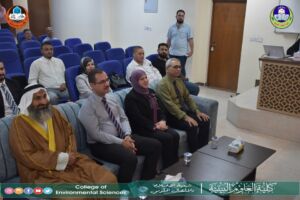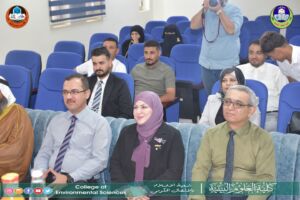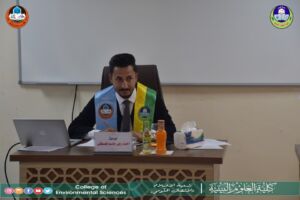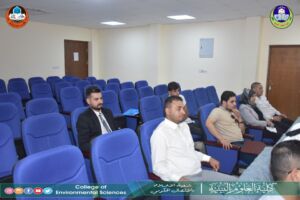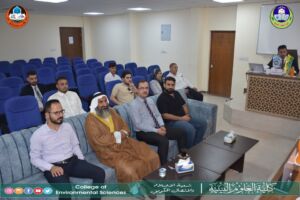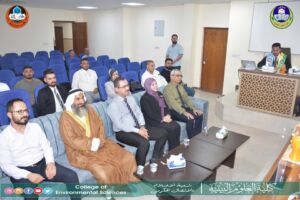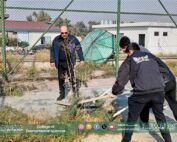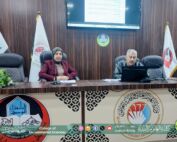29 August، 2024
Master’s thesis discusses blood and immune indicators in the blood of people exposed to radiation..

This morning, Thursday, August 29, 2024, the College of Environmental Sciences discussed a master’s thesis for the student Ahmed Raja Jassim Muhammad Al-Mustafa on his thesis entitled “Measuring some blood and immune indicators in the blood of people exposed to radiation”, attended by the Dean of the College of Science, Dr. Hiam Adel Al-Taie, and the Assistant Dean of the College of Environmental Sciences for Scientific Affairs, Dr. Muhammad Walid Al-Abbasi.
The discussion committee was headed by Professor Dr. Mahmoud Ismail Muhammad, and the membership of each of Professor Dr. Muntaha Mahmoud Daoud and Assistant Professor Dr. Ayman Muhammad Jabr, and the membership and supervision of Assistant Professor Dr. Zahraa Ezz El-Din Younis.
The study included analyzing the negative effects of exposure to radiation on the health of the body by evaluating several physiological and biochemical aspects.
The study aimed to measure changes in the number of red and white blood cells and platelets and analyze the effect of radiation on liver function by measuring ALT and AST levels in addition to evaluating kidney function by measuring creatinine and urea levels and studying hormonal changes, including TSH, T4, T3, testosterone, SSH, ICSH, prolactin, and cortisol, as well as measuring the effect of radiation on iron and zinc levels in the body and evaluating the risk of cancer by measuring CA19-9 and CEA antigens.
The thesis recommended studying the effect of radiation exposure on the efficiency of the immune system and its ability to resist diseases and infections in the long term and studying the long-term effects of radiation on the levels of sex hormones, such as estrogen and progesterone and the impact of this on reproductive health. It also recommended studying how radiation affects bone density and health and whether it increases the risk of diseases such as osteoporosis and examining the effects of radiation on the central nervous system and mental functions such as memory, concentration and sleep. Finally, it recommended studying the effects of radiation at the genetic level and the possibility of genetic mutations and their impact on future generations.
The Assistant Dean of the Faculty of Environmental Sciences for Scientific Affairs, Dr. Muhammad Walid Al-Abbasi, presented certificates of appreciation to both Professor Dr. Mahmoud Ismail Muhammad and Professor Dr. Muntaha Mahmoud Daoud for their attendance and active participation in the discussion.
Division of Media and Government Communication
Faculty of Environmental Sciences
Thursday 29 August 2024





